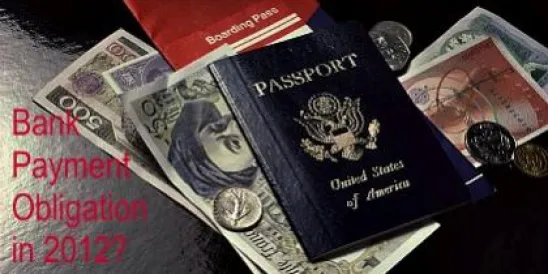Businesses trading internationally have long debated the payment models available to them and their respective costs and risks. Open account is by far the most prevalent, but it carries with it a large credit risk, particularly in emerging countries, such as Brazil, Russia, India, and China. Letters of credit are an obvious alternative, but buyers are wary of the added costs and burdens associated with issuance, confirmation, the exchange of documents, and of course, discrepancies.
Several years ago, into that debate stepped a new product offered by SWIFT (the Society for Worldwide Interbank Financial Telecommunication). SWIFT had developed its Trade Services Utility (TSU) in 2007 to respond to the demands of open account trade and to allow banks to more closely monitor transactions and more efficiently finance those transactions at various points throughout.
TSU offers banks a common standard for the exchange of trade-related data and a means by which that data can be extracted from the documents involved in the transaction. TSU then allows the data extracted from the source documents to be compared to documents created throughout the transaction—such as the commercial invoice or a bill of lading—to ensure that the transaction is carried out as expected. As a result, banks are able to more closely monitor the transaction and make more expedient financing decisions at various points throughout the supply chain.
Through TSU, in 2009, SWIFT was able to offer the bank payment obligation (BPO), a product that has since captured the attention of those involved in trade finance. The BPO is an irrevocable undertaking given on the part of one bank (the Obligor Bank) to pay another bank (the Sellers Bank) provided a number of predetermined conditions have been fully satisfied. Those conditions are met by the matching of data within the TSU. In other words, if payment is to be made upon shipment, a bank will monitor the transaction through TSU, and when the data extracted from, for example, a bill of lading indicates that shipment is made, payment can be released.
There are obvious parallels between the BPO and a letter of credit. Various descriptions from SWIFT and others involved have indicated that the BPO ‘equates’ to a letter of credit1 or compliments the available products a bank may offer its customers.2 The BPO is advertised as more convenient, more cost-effective, and more efficient than the letter of credit, but similar in terms of its legal status. And an important step was taken to solidify the BPO’s legal status when the ICC Banking Commission announced in September 2011 that it will cooperate with SWIFT to adopt rules that apply to BPOs, similar to those adopted to govern letters of credit.
Certainly, as banks become more familiar with their roles and as rules are adopted, banks will increasingly offer BPOs as alternatives to letters of credit. For that reason, some industry experts predict that 2012 and 2013 will see increased adoption of the TSU and issuance of BPOs.3 No doubt buyers who want added credit protection, but find the costs and burdens of letters of credit objectionable, will welcome that change.
Still, questions remain about the BPO. Even as rules of practice are adopted, it remains to be seen how the obligation will be viewed under domestic law. For example, the United States enjoys the benefit of statutory law developed to govern letters of credit more than 50 years ago, revised more recently, and interpreted by decades of court decisions. If the BPO ‘equates’ to a letter of credit, should it be interpreted under the same law or should that law be revised where necessary to incorporate BPOs? Should the BPO be interpreted under the common law of the jurisdiction, as would a contract?
It may seem trivial to question the law that governs a transaction, when the parties agree to the rules of practice that govern it, and to some extent, law will develop as the market demands it. However, parties simply need to be aware what principles are established in letter of credit law and contract law that are yet to be decided as to BPOs. Could a party seek a court injunction to stop payment, or—as is the case with letters of credit—must that party demonstrate fraud first? Are the same remedies available if a bank wrongfully fails to pay after verifying that the conditions precedent to issuing the BPO are met?
Until it has been decided what law governs these transactions, the parties simply need to be aware that these questions are outstanding. Parties can contract for some of the same protections, and to the extent possible, they should do so. By anticipating some of these issues, parties that welcome the cost-effective and efficient nature of the BPO can realize these benefits and help make the BPO a viable alternative in the market.
____________________________
(1) David Hennah, “Managing the cash conversion cycle: where can SWIFT add value?” The Standard Chartered Guide to Working Capital Management in Asia, Africa and the Middle East 2009/2010, available at:http://www.swift.com/about_swift/press_room/swift_news_archive/home_page_
stories_archive_2009/Managingthecashconversioncycle_wherecanSWIFTaddvalue.page (January 26, 2009).
(2)“The best of both worlds,” Supply Chain on SWIFT, Issue 6, Q2, 2011, available at http://www.swift.com/about_swift/publications/newsletters/Supply_Chain_on_SWIFT_Issue_6_Q2_2011.pdf
(3) See e.g., Nigel Taylor, “A Change in Global Trade Dynamics Propels Adoption of SWIFT TSU,” available at http://www.gxsblogs.com/nigeltaylor/2012/01/a-change-in-global-trade-dynamics-propels-adoption-of-swift-tsu.html (January 7, 2012).




 />i
/>i

